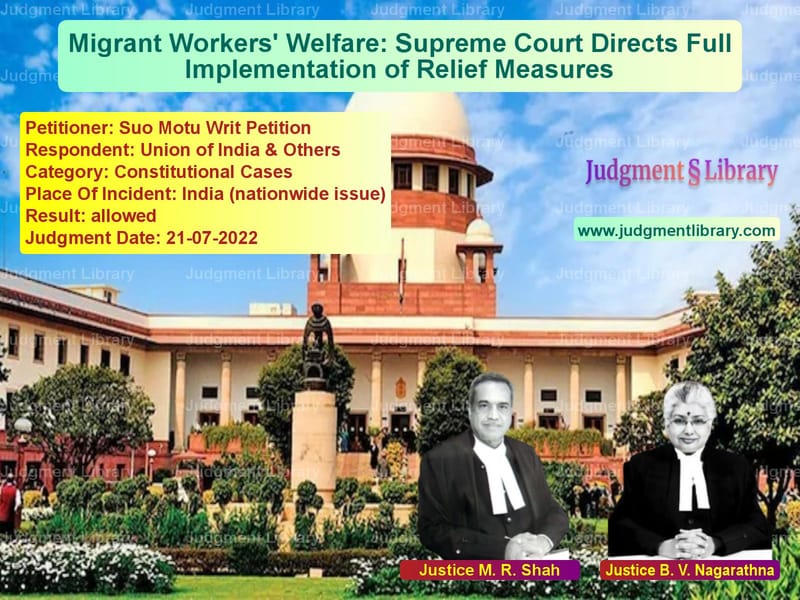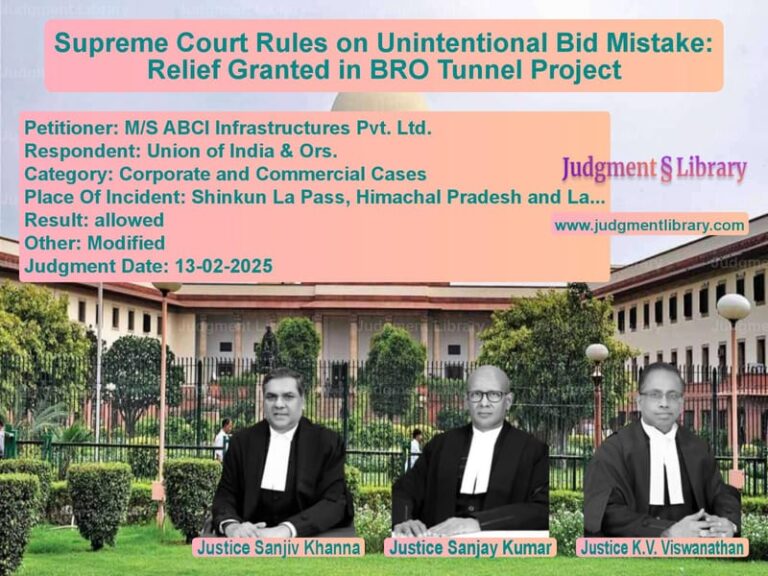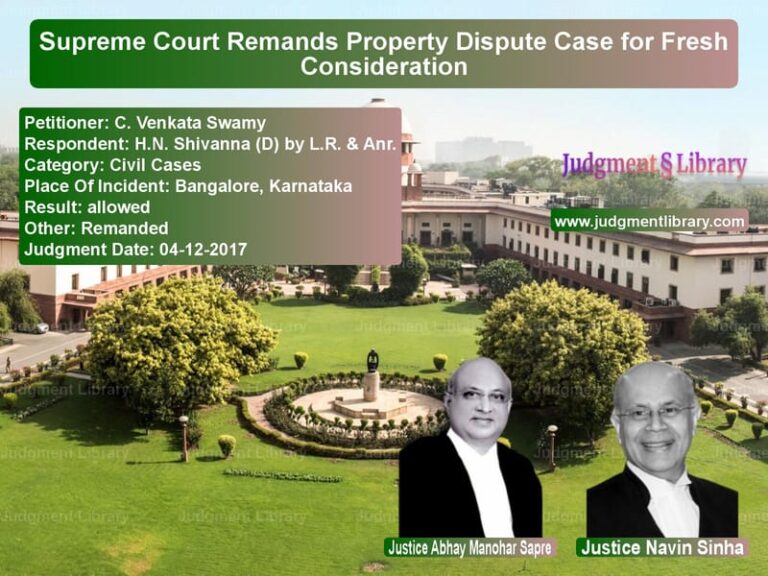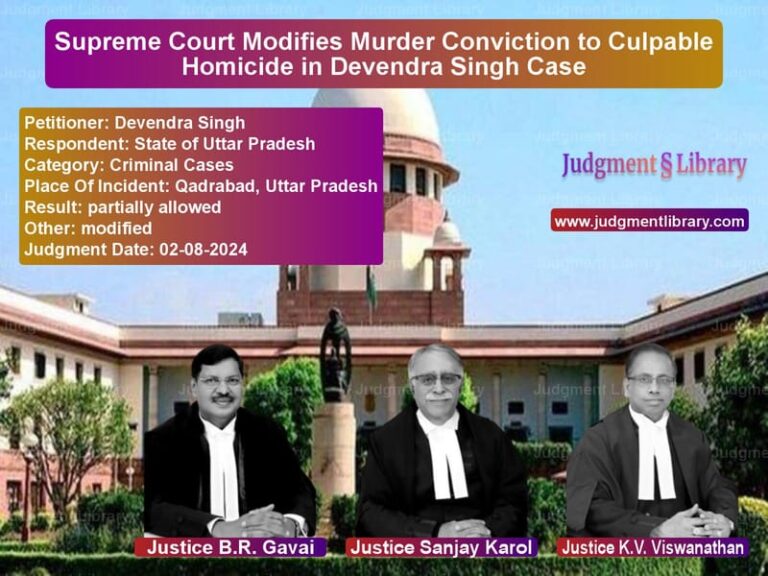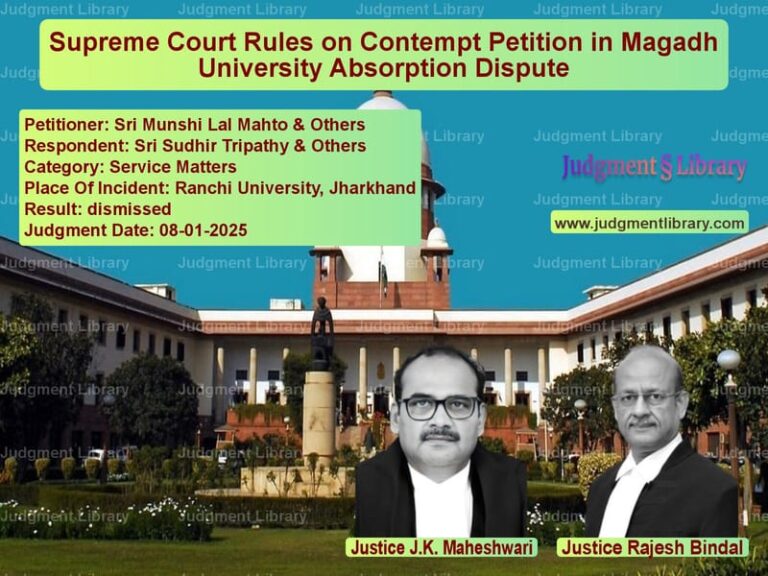Migrant Workers’ Welfare: Supreme Court Directs Full Implementation of Relief Measures
The case titled In Re: Problems and Miseries of Migrant Labourers was taken up by the Supreme Court as a suo motu writ petition to address the hardships faced by migrant workers across India, especially during and after the COVID-19 pandemic. The judgment, delivered by M. R. Shah and B. V. Nagarathna, focused on ensuring that unorganized and migrant workers receive adequate food, financial assistance, and employment support through government schemes.
The Court reviewed compliance with its earlier directions regarding the registration of unorganized workers, distribution of food grains, implementation of the One Nation One Ration Card (ONORC) scheme, and extension of social security benefits to vulnerable workers.
Background of the Case
The Supreme Court had previously issued several orders to protect migrant workers, directing both the Central and State Governments to:
- Develop a portal for the registration of unorganized workers under the National Database for Unorganised Workers (NDUW) Project.
- Ensure that all migrant workers are registered in the system to receive welfare benefits.
- Provide additional food grains to State Governments for distribution among migrant workers.
- Mandate the full implementation of the One Nation One Ration Card (ONORC) scheme across all States.
- Ensure the registration of establishments and licensing of contractors hiring migrant workers under the Inter-State Migrant Workmen Act, 1979.
- Run community kitchens in areas with high concentrations of migrant workers.
Central Government’s Compliance Report
The Central Government, represented by Additional Solicitor General (ASG) Aishwarya Bhati, submitted a compliance report detailing:
- The development of the e-Shram portal, where 27.45 crore unorganized workers have been registered.
- Allocation of additional food grains under the Open Market Sales Scheme to support State-level distribution programs.
- The successful implementation of ONORC in all States and Union Territories, covering nearly 80 crore beneficiaries under the National Food Security Act, 2013.
- Encouragement for State Governments to implement their own schemes for food and financial support to migrant workers.
Issues Highlighted by the Supreme Court
The Court observed that while progress had been made, certain States had not met their registration targets. It was noted that:
- Several States, including Maharashtra (36.97%), Tamil Nadu (34.84%), Telangana (34.90%), Gujarat (48.40%), and Karnataka (36.19%), had failed to achieve even 50% of their registration targets.
- Unorganized workers in many regions still lacked access to benefits due to incomplete registrations.
- The lack of updated population data under the National Food Security Act (NFSA), 2013 was restricting the coverage of food security programs.
Supreme Court’s Directives
Registration of Migrant Workers
The Court directed States that had not met their registration targets to complete the process within six weeks. The Union Ministry of Labour and Employment was ordered to ensure compliance and file a detailed status report.
Food Distribution and Social Security
- The Court emphasized that the “Right to Food” is a fundamental right under Article 21 of the Constitution and directed the Central Government to reassess population estimates for NFSA coverage.
- States were instructed to request additional food grains as needed and implement their own ration distribution schemes.
- Community kitchens were to be continued in major cities until the impact of the COVID-19 pandemic subsided.
Implementation of One Nation One Ration Card (ONORC)
The Court ordered strict enforcement of ONORC, ensuring that migrant workers could avail ration benefits anywhere in the country.
Compliance Monitoring
- The Union of India was instructed to collect data from all States and file a consolidated report on compliance with the directives.
- All States and Union Territories were directed to submit their implementation reports within the prescribed time.
Future Implications
This judgment sets a strong precedent for ensuring that welfare schemes reach their intended beneficiaries, particularly the most vulnerable sections of society. The ruling reinforces the government’s responsibility to provide food, employment, and security to migrant workers.
Conclusion
The Supreme Court’s judgment in this suo motu case is a significant step toward addressing the long-standing issues faced by migrant workers in India. By enforcing the registration of unorganized workers, directing food distribution, and ensuring the implementation of ONORC, the Court has reinforced the fundamental rights of migrant laborers and ensured that government welfare schemes reach those in need.
Petitioner Name: Suo Motu Writ Petition.Respondent Name: Union of India & Others.Judgment By: Justice M. R. Shah, Justice B. V. Nagarathna.Place Of Incident: India (nationwide issue).Judgment Date: 21-07-2022.
Don’t miss out on the full details! Download the complete judgment in PDF format below and gain valuable insights instantly!
Download Judgment: suo-motu-writ-petiti-vs-union-of-india-&-oth-supreme-court-of-india-judgment-dated-21-07-2022.pdf
Directly Download Judgment: Directly download this Judgment
See all petitions in Fundamental Rights
See all petitions in Public Interest Litigation
See all petitions in Constitution Interpretation
See all petitions in Judgment by Mukeshkumar Rasikbhai Shah
See all petitions in Judgment by B.V. Nagarathna
See all petitions in allowed
See all petitions in supreme court of India judgments July 2022
See all petitions in 2022 judgments
See all posts in Constitutional Cases Category
See all allowed petitions in Constitutional Cases Category
See all Dismissed petitions in Constitutional Cases Category
See all partially allowed petitions in Constitutional Cases Category

